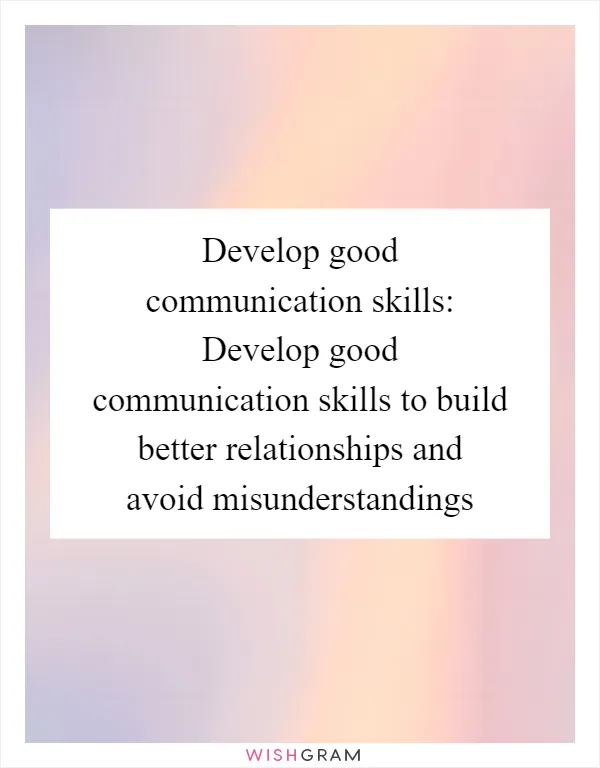Develop good communication skills: Develop good communication skills to build better relationships and avoid misunderstandings
Effective communication is essential for building strong relationships and preventing misunderstandings. By developing good communication skills, you can enhance your interactions with others and foster healthier connections. Here are some valuable tips to help you improve your communication abilities.
Firstly, active listening is a crucial aspect of effective communication. When engaging in a conversation, make a conscious effort to truly listen to the other person. Avoid interrupting or formulating your response while they are speaking. Instead, focus on understanding their perspective and show genuine interest in what they have to say. By actively listening, you demonstrate respect and create a safe space for open dialogue.
Secondly, clarity in your communication is key. Express your thoughts and ideas in a concise and straightforward manner. Avoid using jargon or complex language that may confuse the other person. Be mindful of your tone and body language, as they can greatly impact how your message is received. Strive for clarity by using simple and precise language, ensuring that your intended meaning is easily understood.
Furthermore, empathy plays a vital role in effective communication. Put yourself in the other person's shoes and try to understand their emotions and perspective. Empathy allows you to respond in a compassionate and considerate manner, fostering a deeper connection. Acknowledge their feelings and validate their experiences, even if you may not fully agree. By showing empathy, you create an environment of trust and understanding.
Additionally, non-verbal communication should not be overlooked. Your body language, facial expressions, and gestures can convey messages just as powerful as your words. Maintain eye contact, use open and relaxed body posture, and offer a warm smile to show your engagement and approachability. Being aware of your non-verbal cues and ensuring they align with your verbal communication can significantly enhance your overall message.
Moreover, be mindful of your emotions during conversations. Strong emotions can cloud your judgment and hinder effective communication. If you find yourself becoming overwhelmed, take a moment to collect your thoughts and calm down before continuing the conversation. Responding with a level head allows for more rational and productive discussions, reducing the likelihood of misunderstandings.
Lastly, practice patience and understanding. Not everyone communicates in the same way or at the same pace. Be patient with others, especially if they struggle to express themselves or understand your message. Avoid rushing or becoming frustrated, as this can create tension and hinder effective communication. Instead, offer support and encouragement, allowing the conversation to flow naturally.
